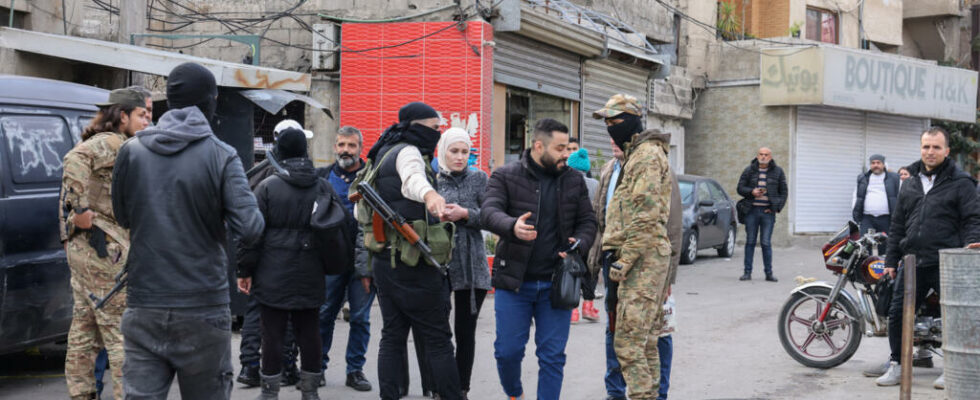In a short time, the security tensions which are shaking several cities in the north and east of Syria, mainly populated by Alawites, have spread to the capital, Damascus, and more precisely to the district of Mezzeh, where This community also resides in majority.
2 mins
From our special correspondent in Damascus, Mohamed Errami
As elsewhere in Syriahundreds of Alawites, including Ali and Hussein, invaded the streets of central Damascus. Their faces are marked by worry. In this usually calm neighborhood, fears are growing. Their fear: being targeted by the new Syrian administration, accused of wanting to weaken their community, formerly protected by the regime of Bashar al-Assad, as Ali points out:
“ We cannot remain silent as we see security forces trampling on portraits of His Eminence Sayyed Hassan Nasrallah or insulting our symbols and sacred places. We came out today because we have dignity, and we do not accept that. »
Hussein explains a difficult situation also for the Alawites: “ At the beginning of the revolution we were harassed, but now everyone must understand that we were oppressed like all Syrians. »
The new power wants to be reassuring
In response to these events, the new power controlled by the Hayat Tahrir al-Sham group decreed a curfew from 8 p.m. to 8 a.m. to, according to it, protect all citizens. At the Syrian Interior Ministry, this anxiety is known. Imad Abou Talha, director of security operations in Damascus, receives RFI in a room. He wants to be reassuring:
“ The Directorate of Military Operations is responsible for protecting all demonstrations and protests. We don’t shoot unarmed people. Our military operations aim to provide freedom to Syrians and enable them to claim their rights. »
However, the accusations are flying. The interim government points the finger atIranaccused of stoking fear to divide. But in the streets, it is the furtive glances and the whispered discussions that betray the dominant feeling: that of a community that feels abandoned.
Also readThe risk of fragmentation hangs over post-Assad Syria
